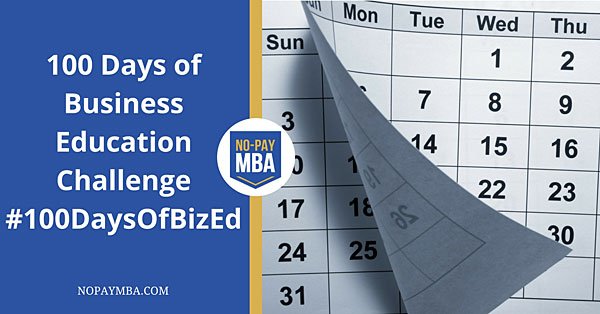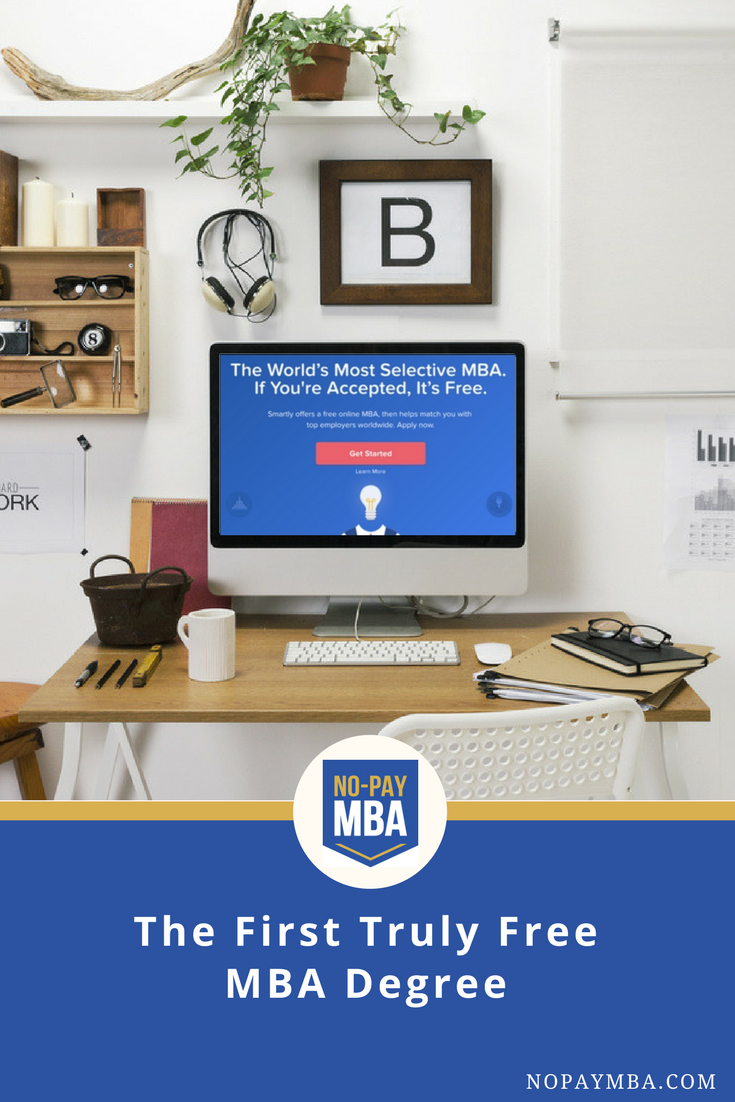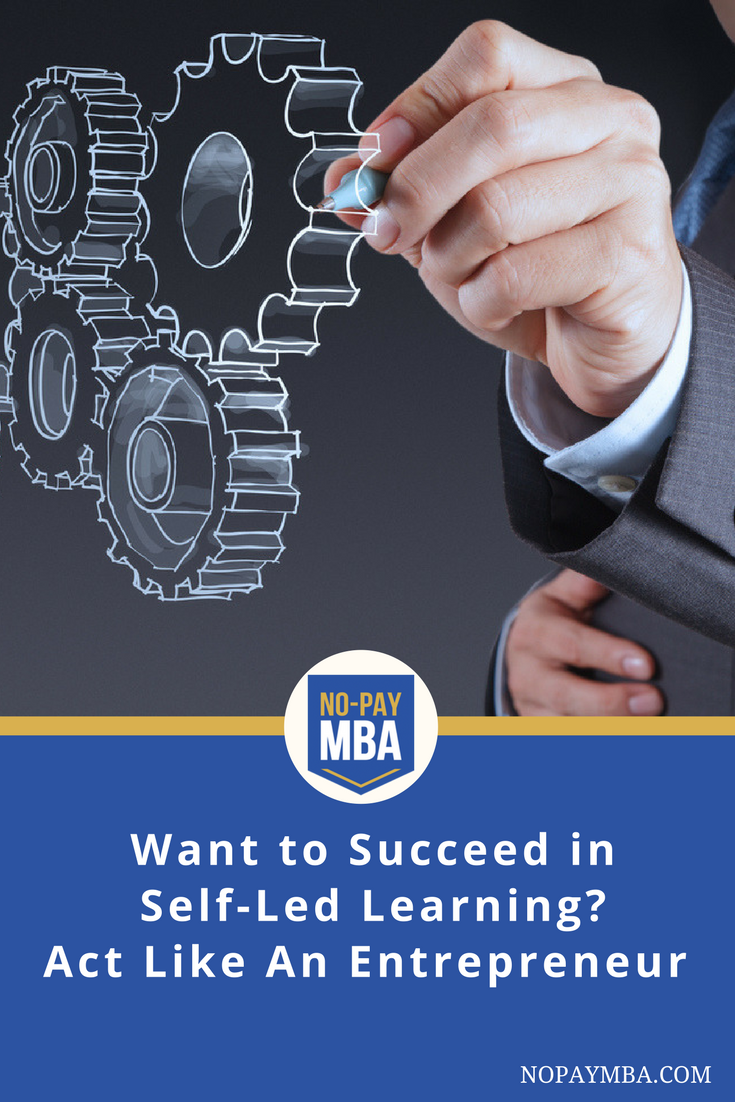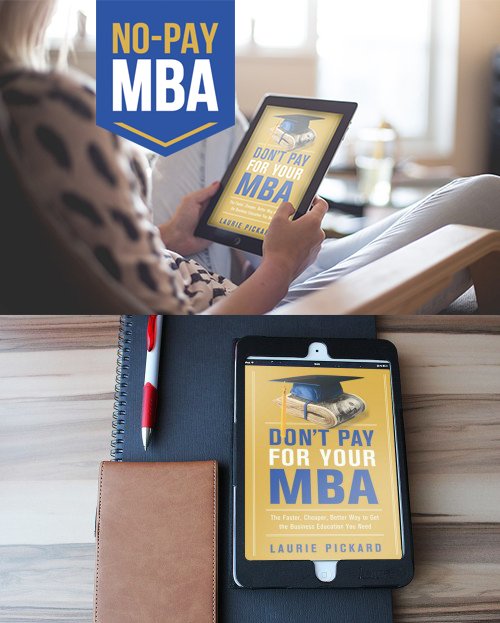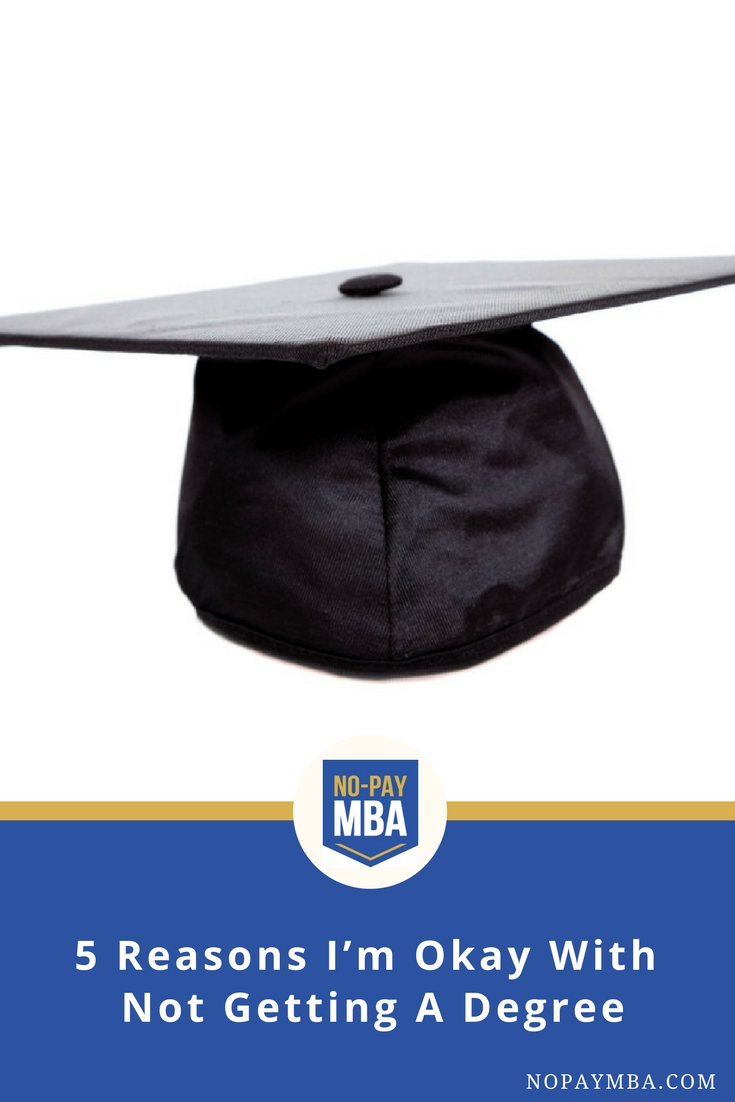
So did you get an MBA degree?
This is the question I field most frequently when I tell people that I created my own business education program using MOOCs and then wrote a book about it.
While I did get a fabulous business education, I did not get an MBA degree. I also didn’t get buried under a mountain of debt, nor did I waste time (or money) in classes that weren’t interesting or relevant to my career ambitions.
Perhaps you’ve considered taking a few business MOOCs, or even undertaking a complete MBA-style education as I did. If so, then you may also be wondering whether it makes sense to pursue an education that doesn’t come with that piece of paper.
Here are the top five reasons why a No-Pay MBA made sense for me, even without a degree.
Reason #1: I am confident in my ability to present my No-Pay MBA as a legitimate part of my education.
While some employers might not consider my resume due to the fact that I don’t have a true MBA, I expect that many will be intrigued by my choice to pursue an unconventional learning path. But don’t take my word for it, see this letter from CEO Mark Olvito. Once I get an interview, I’ll be happy to demonstrate my business skills and savvy. I also have my website to back me up – but you wouldn’t need a whole website to showcase your learning. A strong portfolio would probably do the trick.
Reason #2: Given m personal career ambitions, the investment in a traditional MBA wouldn’t have paid off.
I can certainly understand the financial case for getting an MBA, especially for people with very specific goals or people who want to enter certain industries (e.g. finance, consulting). But my situation is a little different. My career thus far is in international development – not known for salaries of the kind that make an MBA investment worthwhile. I enjoy this work and the opportunity it provides to have a globe-spanning career. Now that I have finished my No-Pay MBA, I plan to follow a more entrepreneurial path. Being debt-free leaves me open to riskier options, such as starting my own business or working for a startup. I am happy not to be saddled with a debt burden that constrains my choices. And I’ve done my homework. Check out the No-Pay MBA calculator if you want to know whether a No-Pay MBA makes financial sense for you.
Reason #3: The content of an MBA is valuable with or without the degree!
How cynical are we if we can’t see that the education itself has value, whether or not you get the piece of paper to prove it? In my view, what you get at a traditional business school has three components – the educational content, the network, and the degree. It is probably true that of those three, the slice that makes up the smallest share of the total price tag of an MBA is the educational content (which would help to explain why some top business schools are willing to give away their courses for free). Still, I believe that education has intrinsic value. And business education has more than intrinsic value. Ask me how much my No-Pay MBA was worth after the next time I conduct a salary negotiation using what I learned in Successful Negotiation.
My No-Pay MBA did earn me a promotion and a sizeable raise. I was also able to start putting my new skills into practice immediately on the job, bringing additional value to my employer right away.
Reason #4: An MBA isn’t usually required.
For many jobs an MBA is a “nice to have.” In only a few jobs is it a “must-have.” Marketing strategist Dorie Clark recently wrote an article for the Harvard Business Review titled “Do You Need a Formal Degree, Or Will a MOOC Do?” As Clark points out, “having an MBA may be considered a selling point, but it’s rarely required for a particular job.” She goes on to say that in industries in which MBAs are relatively uncommon, getting one may be “overkill”, especially when there are other options for acquiring the skills that are valued in your industry.
Reason #5: The MBA is no longer the only credential in town.
The MOOCs platforms are hard at work creating credentials that will hopefully have real value in the job market. So-called “microcredentials” encompass many kinds of credentials that are less than a full degree, including verified certificates of completion from the MOOC providers, Udacity’s Nanodegrees, and edX’s MicroMasters, among others. EdSurge recently reported that these kinds of credentials are proliferating. During my studies, I earned many MOOC Statements of Accomplishment, some of which I display in my portfolio.
So yes, I took a risk by getting a business education that didn’t result in a degree. It cost me much, much less than a traditional MBA would have, and it paid off in both financial and personal ways. What about you? Do you think a business education can be “worth it”, even if it doesn’t result in an MBA degree?
